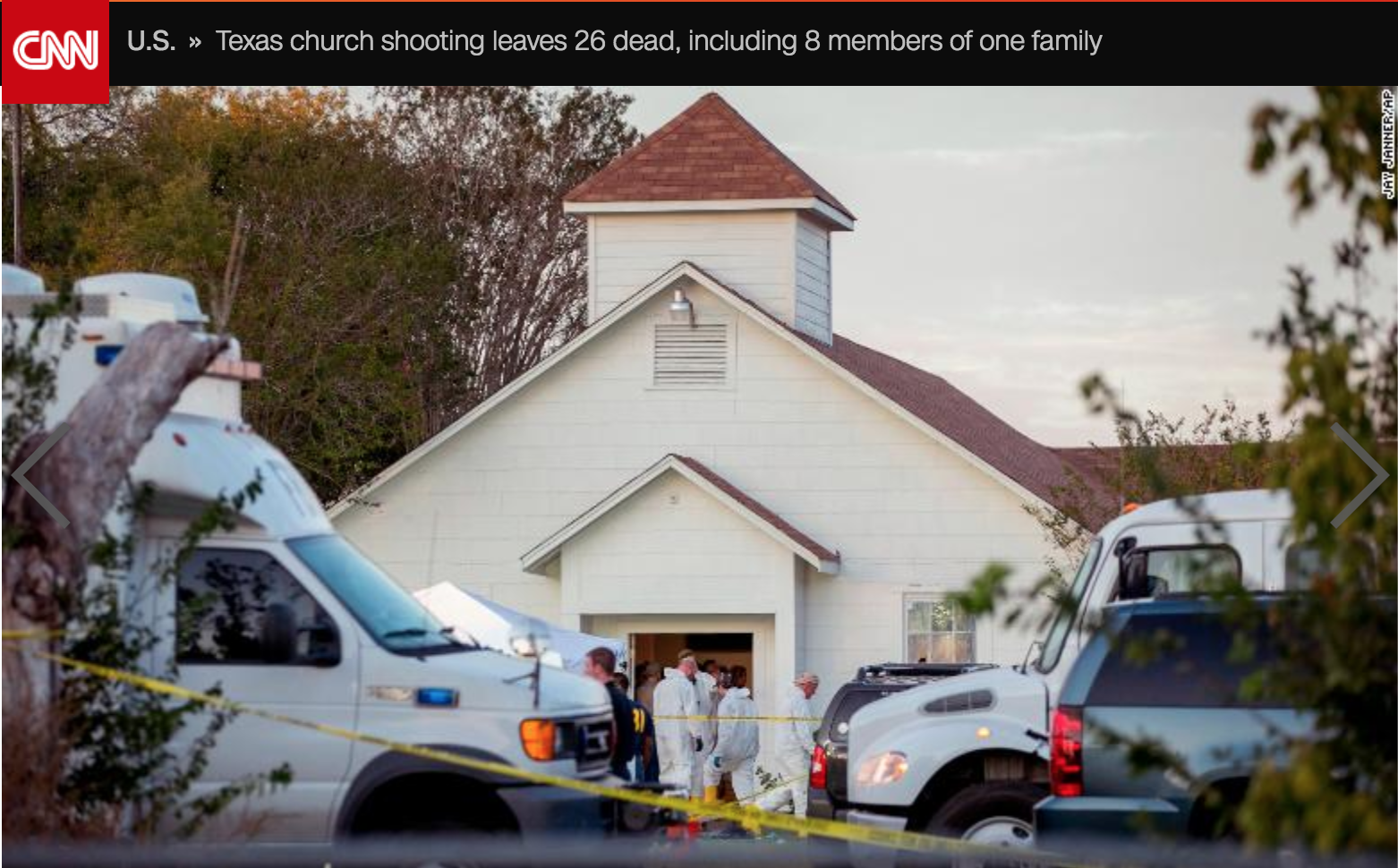By Denise George
Special to The Alabama Baptist
On Sunday, Nov. 5, a Texas community experienced a mass shooting at a local church during its morning worship service. The small congregation at First Baptist Church, Sutherland Springs, in Texas was victim to an active shooter who walked into the church about 11:30 a.m. He killed 26 church members, including the pastor’s 14-year-old daughter, and wounded about 20 others before he died from gunshot wounds outside the church (reports weren’t clear at press time whether he was shot or if he committed suicide). A close-knit community, Sutherland Springs is home to about 400 residents. First, Sutherland Springs, like most small Southern Baptist churches, had minimal church and grounds security.
After another church shooting, many pastors and church leaders are asking how they can protect their church members against this kind of unexpected violence.
Here are some ways to protect your church:
- Hire security guards as a first line of defense. Train volunteer church greeters to be watchful for those who are suspicious and may cause violence. Provide them with two-way radios to report possible danger to an appointed church person.
- Establish a no-concealed weapons policy in your church.
- Meet with local police and learn their strategy for responding to an active shooter. Give police a detailed blueprint of every room in the church to be used if they might need to secure the building. Ask police for up-to-date contact information in case of a church crisis and distribute to church leadership/staff. Ask law officials about a lockdown policy for your church to avoid the chaos of an unexpected evacuation.
- Train your deacons to be watchful before, during and after church worship services and events. Teach them to be actively aware of people/things that seem out of the ordinary. During worship services, place deacons throughout the sanctuary, balcony and building. Most church shootings take place after the worship service begins.
- Consider locking some church entrances after services begin, but use doors that allow members to leave the building if necessary. Put greeters or a security guard outside entrance doors left unlocked to meet latecomers.
- Establish an emergency plan in the event of an act of violence and practice it regularly. Equip church leaders and staff with information on how to respond to emergencies, as well as how to get police and medical assistance. Create a list of counselors in your area who can be contacted in case of an emergency.
- Hold a disaster leadership workshop. Ask a local police chief to train appointed key leadership/people in your church to deal with active shooters.
- Also plan for a post-incident course of action: evacuation and assembly points, witnesses speaking with police, prayer time and counseling, etc.
- Make the congregation aware of all emergency exits in the building. Ask members to report any concerns and/or anything out of the ordinary to the appointed central person. Teach them what to do in case of an emergency. This can be done with the congregation as a whole or through newsletters and brochures. Practice emergency procedures together as a church on a selected day.
- In your children’s ministry area, organize a safe system of drop off and pick up for each child. Make sure each volunteer worker with children has passed a criminal background check. Station security volunteers or professionals at the entrance of the children’s area. Report any suspicious persons.
- In case of an emergency, alert your members to places they can take cover and hide, as well as a designed rally point inside or outside the church.
- Know your church members, especially those people who have criminal records, a history of violent behavior or a grudge against the church and/or leadership.
- Establish a good method to communicate among church leaders, staff and security teams.
- Install closed-circuit televisions, alarm systems and good lighting for church grounds at night, especially in car parking lots.
- When reporting an active shooter, call 911 immediately. Tell first responders the following urgent information (if you know it):
- The estimated number of shooters.
- The shooter’s location in the building.
- The type of weapon shooter might be using.
- The immediacy of the threat.
- The location of nurseries, children’s ministries and other sensitive areas.
Stay on the line to keep police informed about happenings, etc.
While church shootings are rare, shooting violence is escalating. Taking preventive measures: carefully-placed safeguards, designated security teams and a practiced plan of action/evacuation can help Southern Baptist churches avoid the tragic results of active shooters and other acts of violence.
To help your church guard against violence and other disasters, you can order a church safety toolkit from GuideStone Financial Resources through a partnership with Brotherhood Mutual Insurance Company at this website: www.guidestonepropertycasualty.org.






Share with others: